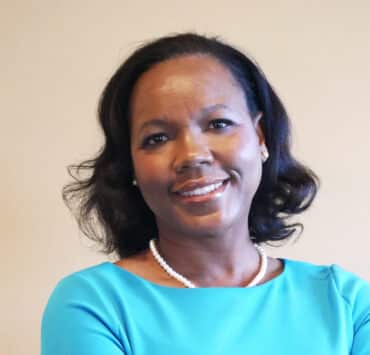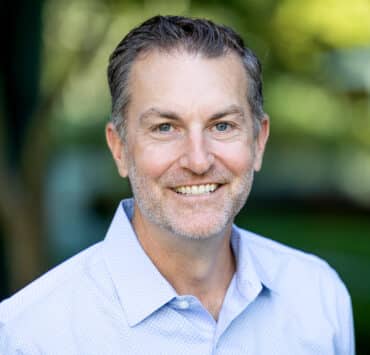As an individual performer, Zoe Peterson-Ward was unstoppable. The future executive fell in love with consulting early on in her career, imbued with grit and the drive of a highly independent person determined to make her own way. She worked herself to the bone to be a consulting pro with all the answers for her clients.
When she started leading teams of her own, Peterson-Ward had the same insight for how her people should operate and how they should succeed.
“I was sucking all of the oxygen out of a room,” Peterson-Ward reflects. “I was spending so much time directing people and telling them what and how do things that I was really missing the opportunity to bring more people in the boat.”
Peterson-Ward, now chief customer officer (CCO) at Workhuman, has come full circle. She is not the leader she was, overly focused on putting the pedal to the metal. She acknowledges that’s not what leadership calls for; therefore, it isn’t how she guides her team at Workhuman.
“I did all the gritty work, and I’ve done some wild things in my career,” says Peterson-Ward, earnestly. “But I’ve been graced with the opportunity to be here at a time in my career where I feel like it’s time to give back. I want to make sure that I’m investing in the next generation of Workhuman leaders.”
“I’ve been graced with the opportunity to be here at a time in my career where I feel like it’s time to give back.”
Zoe Peterson-Ward
The Recognition Difference
While Peterson-Ward began with a mindset that was driven by the work, she has blossomed in an organization dedicated to fostering more inclusiveness, pride, and recognition for employees all over the globe.
Workhuman continues to publish findings about just how cost-effective taking the time to acknowledge and celebrate employees can be, and how much more satisfaction it can bring to people in their own work.
Just seven days after the CCO’s interview with American Healthcare Leader, Workhuman published findings from a joint study with Gallup, From Praise to Profits: The Business Case for Recognition at Work, that found—among other statistics—if a business of ten thousand employees doubled the number of employees who received praise or recognition for their work in the last week, it could expect a 9 percent increase in productivity. And not only that, but a staggering 22 percent decrease in both safety incidents and absenteeism.
Gallup estimated recognition programs would add $92 million in gained productivity, $2.8 million saved due to workplace safety incidents, and $3.2 million saved in unscheduled absences. This based on Bureau of Labor Statistics results calculated for an organization with ten thousand employees.
Workhuman recognition plans have already been utilized at Merck for five years, where the company has found that new hires who were recognized in their first year of service were five times less likely to leave within that year. More broadly, the recognition programs yielded 1.3 times less turnover overall for employees that were receiving recognition monthly.
“We help organizations understand how recognition programs impact key metrics like turnover and productivity,” Peterson-Ward explains. “We can help our customers calculate the actual return on investment they can receive if implemented correctly.”
Despite repeated and continuing statistics proving the viability and importance of recognition, only one in five leaders contacted for the Gallup study listed employee recognition as a major strategic priority.
The power of the team is always stronger than what an individual is going to do on their own.”
Zoe Peterson-Ward
Being More Human
Peterson-Ward’s focus on coaching versus instructing wasn’t born at Workhuman. During her eleven years at Salesforce, she says she was given a gift in the form of the organizational importance placed on professional development.
“Over time, I really began to realize that my approach as a people leader was not the best,” Peterson-Ward says. “I learned that I shouldn’t be the smartest person in the room. That wasn’t my job. My job was to create an environment where everybody had a voice. The power of the team is always stronger than what an individual is going to do on their own.”
That’s what makes the CCO such a perfect fit for Workhuman. She now sees herself as a coach more than anything. By motivating her people to take accountability for their own work, Peterson-Ward is letting her people succeed their way and building buy-in along the way.
Instead of telling people how they are doing, Peterson-Ward says she asks open-ended questions that can lead to more growth than any ultimatum or dressing down ever could. And it’s how you build future leaders who can think critically and empathetically.
Now More Than Ever
The CCO says that as the economy continues to move toward a recession, as tech companies continue to announce layoffs, and the landscape becomes more challenging for employers and employees alike, it’s exactly the time to invest in employee recognition programs.
“We’re at a very interesting point in time right now with two very important realities that are happening across corporate America,” Peterson-Ward explains. “Many organizations are making decisions to cut back and save money in the short term, with work being redistributed across an already overburdened workforce.
Secondly, many employees are still working remotely, and if you’re not doing anything to keep those individuals engaged and connected, you’re losing performance, morale, and, eventually, people altogether,” she continues.
The numbers continue to prove it. The statistics all line up. And yet there continues to be a disconnect about just how much employee recognition programs can positively impact an organization, especially in tough times.
“In moments of volatility, it’s vital that organizations are retaining the top talent needed to weather the storm,” Peterson-Ward says. “Those that have invested in building a culture where employees regularly feel seen and appreciated are creating that resiliency.”


